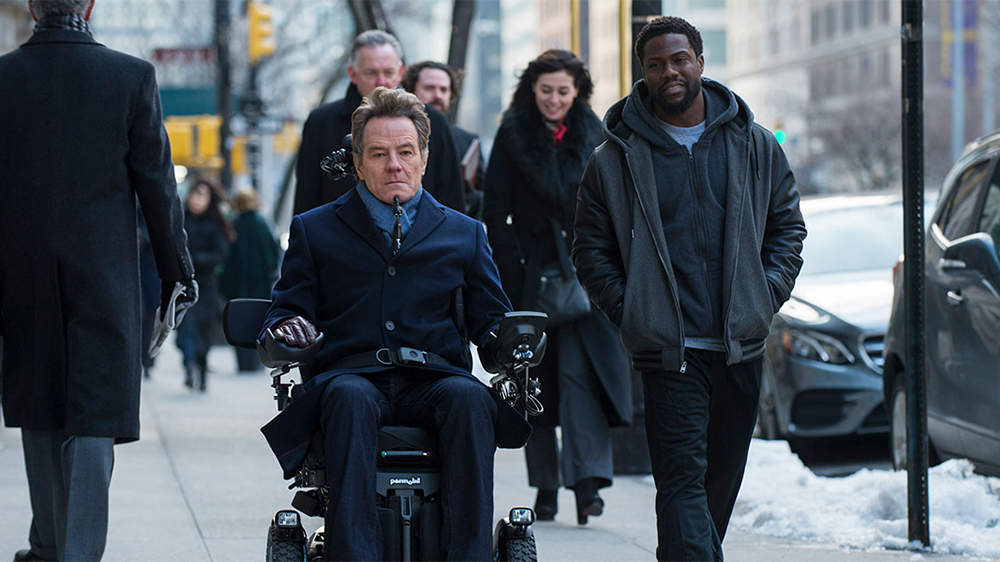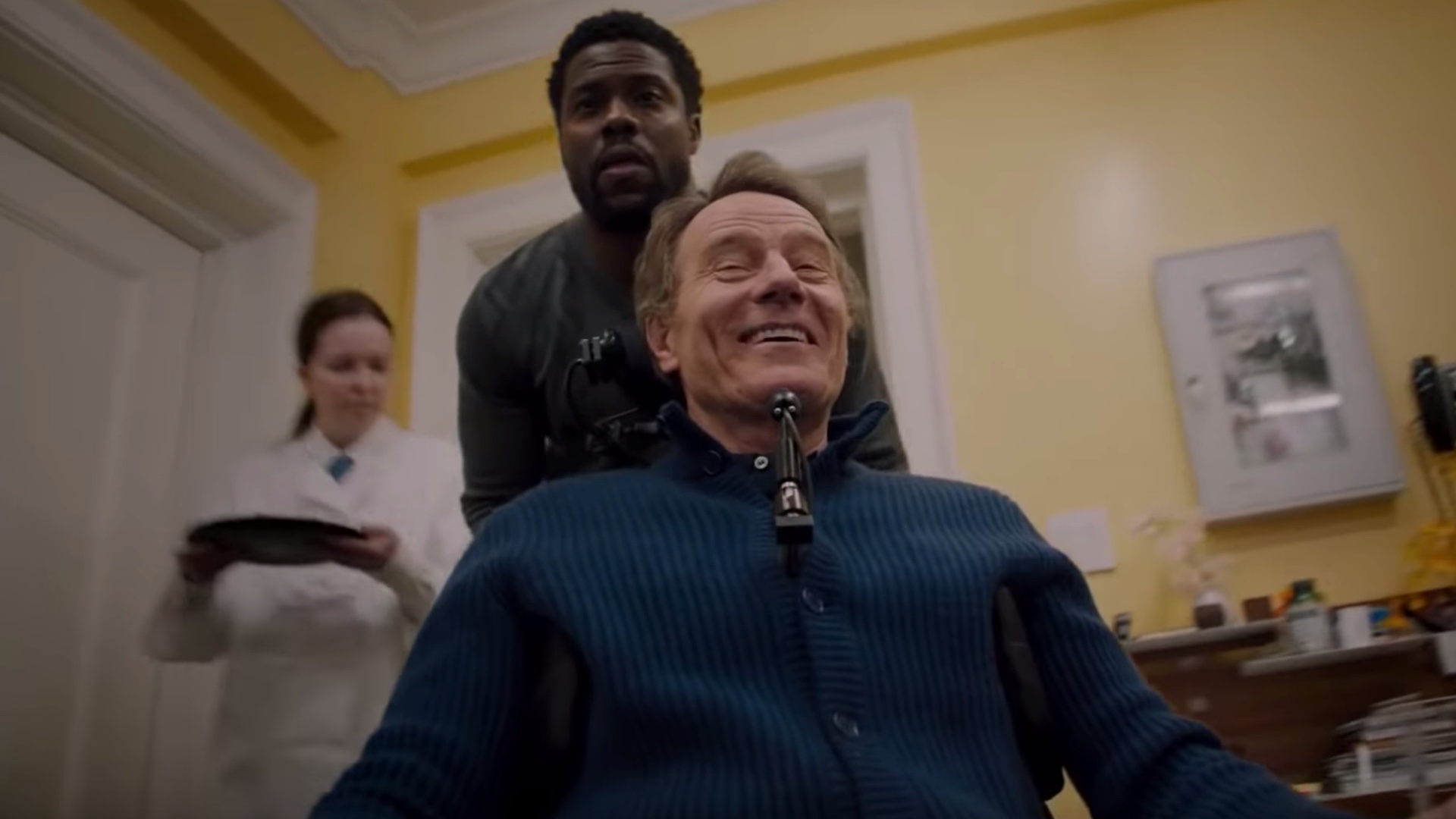
By Jacob Sahms
Sometimes at Dove, there are films that speak to the soul but for various reasons simply cannot be Dove Approved. The films released with the award seasons of The Golden Globes or The Oscars regularly fall into that category. There’s something edifying about some of those films, like Green Book’s explanation of overcoming racism or, last year, Hacksaw Ridge’s approach to pacifism and faith, but language, sexuality, violence, etc. keep them from approval. Intelligent, discerning audiences can glean powerful reminders of the kind of lessons Jesus taught, recognizing what pitfalls to avoid and what elements to emphasize.
The Upside is one of those kinds of films. [You can read the review here.]
In The Upside, Kevin Hart plays Dell Scott, a recently-released con who needs proof of three job applications to pacify his parole officer, and finds himself hired by Philip Lacasse (Bryan Cranston), a billionaire paraplegic, as his caregiver. Lacasse’s assistant, Yvonne Pendleton (Nicole Kidman), sees Scott for what he has been, and doubts his untrained, unrefined inexperience will last alongside Lacasse. But this story wouldn’t have been told if Scott wasn’t up for the task.
 Inspired by the life of Philippe Pozzo di Borgo, the film is the third remake of the French film The Intouchables. In both versions, there is a rich white man who, himself objectified and ignored, finds camaraderie with a black man, alone and sinking. In the midst of their cultural, financial, and intellectual differences, the two of them recognize the potential that the other has for creativity, for friendship, and for love. What isn’t to like about this?
Inspired by the life of Philippe Pozzo di Borgo, the film is the third remake of the French film The Intouchables. In both versions, there is a rich white man who, himself objectified and ignored, finds camaraderie with a black man, alone and sinking. In the midst of their cultural, financial, and intellectual differences, the two of them recognize the potential that the other has for creativity, for friendship, and for love. What isn’t to like about this?
The chemistry between Cranston and Hart works – they play off of stereotypes and provide some genuinely funny, touching moments. Cranston’s physically crippled but still intellectually brilliant Lacasse burns a haughty rich snob, Tate Donovan’s Carter Locke, who is out to sink Scott, providing comic levity but also showing how Lacasse sees Scott as more than the sum of his rap sheet. Facing today’s policies, walls, laws, and brutality, The Upside invites the audience to see people for more than a first glance, to appreciate their gifts, and to love them the way God made them.
Acknowledging that a black man does not have the same status as a white one, or that handicapped people are often ignored, the film feels good because it shows what love can do. But it also doesn’t shy from tackling issues like absentee fathers, grief, and shame: it’s not a perfect picture, but it shows how imperfect people can help each other put the pieces back together. Yes, there are moments that are not meant for younger viewers, but for discerning audiences,The Upside has more than its fair share of a kingdom of heaven worldview.




